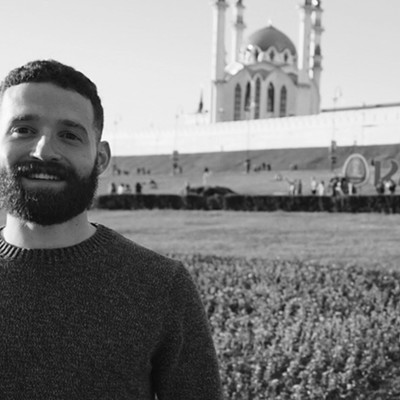The much-anticipated UN report, which was publicly released July 4, one day before Venezuela's independence day, has forced the attention of the international community. But for Venezuelans long acquainted with the suffering caused by the Maduro regime, the report is hardly news.
Miami resident Richard Redman says the report offers a certain vindication to Venezuelans like himself who have been affected directly and indirectly by the violence in their country. For Redman, every new horror story in Venezuela brings back painful memories of his late cousin, Roberto Redman, who was murdered in 2014 during an antigovernment protest in Caracas.
The day of his assassination, Roberto Redman had already looked death in the face once. A young protester named Bassil Da Costa had been fatally shot in the head by an agent with the Venezuelan special forces. Roberto helped carry the body a few blocks until finding someone who could help. Afterward, he rushed home to change out of his blood-stained clothes. His father, Derek Redman — Richard's uncle — pleaded with him to stay home, where he was safe. Roberto, who was known for his political activism on Twitter, instead chose to go back out to join protests in the middle-class neighborhood of Chacao. He sent one of his last tweets not long after leaving the house: "Today I was hit in the back with a rock, in the nose with a helmet, I swallowed tear gas, I carried the kid who died, and what did you do?"
A few hours later, he would also be dead, killed by a member of a colectivo — one of the motorcycle-riding paramilitary groups known for attacking Maduro's critics and enemies.
"The motorizados found him in the crowds and shot him while he was facing the other way," says Richard Redman, who moved to Miami in 2010 with his wife. "They put a bullet in the back of his head."
"The wound is opened up again whenever we hear of more protesters being killed," Redman says. "We hope justice will be served — for Roberto's sake."Aquí con mi hijo en el 2do aniversario de su asesinato por sicarios del régimen.Dios te bendiga hijo pic.twitter.com/LKeJiNesKK
— Derek Redman ® (@RedmanDerek) February 12, 2016
Roberto was 31 years old when he was killed. He had recently graduated from flight school as a trained pilot and planned to fly commercial planes, according to his cousin. Redman insists that if were Roberto still alive, he would be on the streets protesting today.
The UN report, issued by the Office of the United Nations High Commissioner for Human Rights (OHCHR), shows protest-related attacks have continued under Maduro, with at least 66 deaths documented between January and May alone. Protesters are also often arbitrarily detained and tortured as part of a larger campaign of targeted repression by the Maduro regime.
The OHCHR report notes an increase in the number of arbitrary detentions of relatives, particularly women, of Maduro's alleged political opponents. These detentions are used to extract information but also double as a means to exert pressure on the alleged fugitive.
José Colina is a former Venezuelan military officer living in Miami who has been in exile for more than 15 years. In 2015, his first cousin Yelut Naspe Iniestra was arrested for allegedly helping organize an attack on a police station in the state of Aragua, more than 60 miles from her home in Caracas. She's been locked up by Venezuelan special forces ever since, and Colina fears she'll never be the same.
"She wasn't there [in Aragua] that day, of course. She was home," says Colina, a vocal critic of Maduro. "But they associated her with me because she's my first cousin and arrested her because of that. That's all it takes."
According to reports from last year, Naspe Iniestra was the only political prisoner still being kept at the infamous jail known as El Helicoide, which was slammed in the OHCHR report. El Helicoide has only one overcrowded cell for women, the report says. "Guards and other prisoners pressured women to exchange sex for 'privileges' and/or protection. Several women also said that they had no access to specialized medical care and that, unlike men, they were not always allowed to go to the patio or the gym. Women detained for political motives were often denied visits."
— Emilio Naspe (@NaspeEmilio) October 2, 2018Naspe Iniestra turned 50 this year. According to Colina, she still hasn't had her day in court.
"She's going to leave with significant psychological trauma if she manages to get out at all. What they've done to her is irreparable," says Colina, who, like Richard Redman, thinks the UN report might be too little, too late.
"This is a truth that everyone knew and denounced for years," Colina says, "that the High Commissioner's office at the United Nations is now saying the same thing is important, sure. But journalists, politicians, and activists in Venezuela have been saying this for far too long."
Colina's organization, Veppex (an acronym for Politically Persecuted Venezuelans in Exile, in Spanish), will hold a mass for Venezuela's political prisoners in Miami tonight at Iglesia Mother of Christ, located at 14141 SW 26th St. The service begins at 8 p.m.











